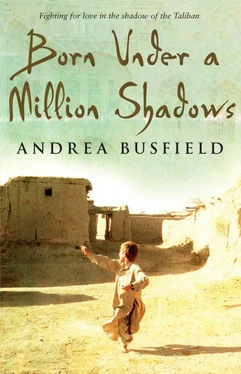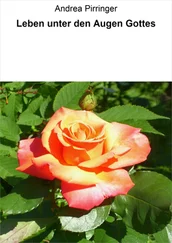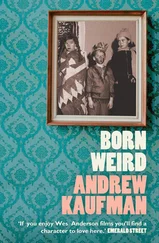That afternoon, after a great spread of sheep kebabs, curried chicken, Kabuli pilau, and warm naan—all of which had appeared with Haji Khalid Khan and Ismerai—we relaxed into the evening, drinking from cups steaming with the green tea my mother had prepared. Although she sat a little back from us, on one of the plastic chairs, my mother was as much a part of the group as any of us on the blanket, listening and laughing to the stories batting from one person to another.
James, who was sharing a cushion with May, and an Afghan cigarette with Ismerai, was taking charge of most of the conversation as he had recently returned from Bamiyan. He said he had seen the huge holes that once housed two giant Buddhas and told us some international companies were now looking at ways to recapture the thousands of years of history that had been blown away by the Taliban.
“Among other things they were talking about was a laser show,” he informed us, “the idea being to re-create the Buddhas in 3-D light where they used to stand. A pretty neat idea, but they’d need a bloody big generator.” He laughed.
“I think it’s a ridiculous waste of money,” commented May, wrinkling the top of her nose. “People can hardly feed themselves, yet they want to spend millions on a fancy light show.”
“But if this ‘fancy light show’ brings in tourists, it would create jobs and bring in money and therefore allow people to feed themselves,” argued James, who always saw the good in everything, even May.
“Tourism!” she replied. “I don’t think Afghanistan’s quite ready for that yet. In fact, wasn’t the tourism minister murdered by pilgrims on their way to hajj?”
“That was a few years ago,” Georgie reminded her.
“And you think the situation is any better now?” May almost shouted. “The Taliban are back, the south has gone to crap, corruption is at an all-time high, and the government’s influence barely stretches outside Kabul.”
“The Taliban are back?” I asked Georgie, startled at the bit of news I had clearly understood.
I sat next to her, and she gently touched my hand. For the first time in a long while I didn’t move away.
“Not really, Fawad,” she reassured me. “But yes, they are fighting with government and international troops in some areas. It’s nothing to get worried about.”
“But why have they come back?”
Georgie looked at Haji Khalid Khan, who leaned in my direction.
“They never really went away,” he said. “Some of them hid out in the mountains bordering Pakistan; others simply hid out in their own towns and villages.”
“Don’t worry too much about the Taliban,” Ismerai joined in. “They’re not the major concern right now. Afghanistan’s main problem is outside interference. People are playing games in our country, and it’s making it increasingly hard to tell friend from foe these days.”
“What kind of games?” I asked. “Who’s playing them?”
Georgie shot Haji Khalid Khan another look she obviously hoped I wouldn’t see, and he clapped his hands together.
“Enough, now,” he ordered in a soft growl created by years of smoking. “These are questions for politicians, not honest, everyday folk like us.”
Ismerai laughed. “True enough, Haji Sahib. Which reminds me of a joke. Georgie, you translate for our foreign guests. Haji might not want to make fun of his friends.”
“Do politicians have friends?” she asked, and those of us who spoke Dari all laughed.
“A busload of politicians was traveling down the road,” Ismerai began. “Suddenly the bus veered off the road and hit a tree near a village. A farmer who was working on his land nearby came over. When he saw the politicians and the wreckage of the bus, he grabbed his shovel and buried all the politicians. Some days later, a police inspector passed by, and he saw the bus that had crashed into the tree. The policeman asked the farmer, who was working on his land as usual, when the accident had taken place. The farmer replied that the accident had taken place a few days earlier. The policeman then asked him about the identity of the travelers, and the farmer replied that ‘all the passengers were politicians’ and that he had buried them all. The policeman asked whether any of them had survived the crash. The farmer smiled and answered, ‘Maybe. Some of them told me they were alive, but we both know politicians lie a lot.’ ”
As Ismerai ended, we all applauded the joke; however, it was Spandi who laughed the longest and loudest. He was practically doubled up, and I wondered whether this was from sitting so close to Ismerai’s burning cigarette. As my friend tried to take back control of his body, tears sprang from his eyes, forcing him to wipe them away with the back of his hand, which left black smudges on his face.
Suddenly, Haji Khalid Khan stopped to look at him, dark and serious.
“You sell spand , I take it?” he asked flatly.
“Yes, Haji, I do,” Spandi replied, his shoulders relaxing from the fit that had just passed over him.
“That’s hard work, boy,” Ismerai admitted, sucking again on his sweet-smelling cigarette before handing it over to Haji Khalid Khan, who took it and nodded.
The big man then leaned over to his uncle and whispered something in his ear. Ismerai smiled, got to his feet, and walked out of the garden and through the gate without another word. None of us asked where he was going because in Afghanistan you don’t ask. In the company of men, a boy is merely expected to sit, watch, and learn. There are many rules in our country, but the rule of not asking is learned pretty quickly.
About thirty minutes later, after James and even May had shared their own jokes with us—some of which I found hard to find funny because they didn’t mention mentals or donkeys—Ismerai came back with a long chain of cards. They were held together by plastic wrapping and advertised companies like Roshan, AWCC, and Areeba. Haji Khalid Khan handed over the chain and a small bag to Spandi. Inside were dozens of the cards that people bought in order to make calls on their mobile phones. They each had a special number that you had to scratch from the back and then dial into your phone. This was big business in Afghanistan because even if you didn’t own the clothes on your back you sure as hell owned a phone.
“These are for you,” Haji Khalid Khan informed my friend. “From now on, you sell these cards, and for every card you sell you get to keep one dollar. The rest belongs to me. Okay?”
Spandi looked at the cards lying in the bag beside him, his red eyes wide and amazed, and nodded his head.
“Thank you,” he said quietly.
“My pleasure, son,” replied Haji Khalid Khan, and Georgie placed her hand gently on his knee and smiled. In fact all of us smiled, and I saw in that one act something of the man she had fallen in love with, because giving Spandi the means to work away from his can was probably the greatest kindness I’d ever witnessed, but never thought of. If I had, maybe I could have convinced Georgie to find Spandi a different job, something away from the poison smoke that clogged his lungs and stung his eyes. But it was Haji Khalid Khan who looked through the black and saw the boy. He had thrown him a second chance, and I felt ashamed of myself for having ignored what was so obvious. Even so, I also felt some small pride in having been the one to introduce Spandi to his new boss.
And that’s when I felt my anger start to slip away from me.
A little after eight, when all the adults had gone their separate ways—James and May to one of Kabul’s many bars, my mother to her room to watch the latest episode of a hysterical Indian soap opera on Tolo TV, and Georgie to Haji Khalid Khan’s house with Ismerai—Spandi and I walked to the dump that wafted bad smells and disease across Massoud Circle. Without a word, I watched him unhook the can from the waist of his trousers, give it one last look, then throw it as far into the heap as his thin arms could manage. As we stood side by side, our eyes followed the can as it bounced off the top of an old gas bottle before disappearing into the fleshy mess of rotten food and waste.
Читать дальше












